In many ways, moving abroad is a leap of faith – exciting and frightening in equal measure, blind hope propelling you towards the precipice of a tantalisingly uncertain future. For many, this allure of the unknown and its promise of adventure are a big part of the drive to uproot one’s life and move somewhere completely new and totally different. But while the adventure is one of the most rewarding parts of building a life abroad, one shouldn’t throw caution to the wind altogether.
Aside from the decision to leave your native country in the first place, no single choice will affect your success and future happiness more than where you decide to settle. So it’s important to put a lot of thought into it. What kind of climate are you prepared to deal with? How much contact do you want with the local people? Will you be able to learn the language? What is the cost of living, and does it fit your budget?
There are so many aspects to consider when selecting your new forever home, it can quickly become overwhelming. That’s why we decided to talk to some of those who have gone through it, to find out what makes their country of choice right for them – and, perhaps, for you.
Getting Cosy In Copenhagen
Originally from Philadelphia, USA, Derek Hartman and Mike Walsh made the move to Copenhagen, Denmark in 2017. They share their experiences through weekly uploads on their YouTube channel, Robe Trotting, as well as Instagram and TikTok. Most of their friends think that living abroad is a globe-trotting lifestyle, but most days they’re just sitting around in their bathrobes like everyone else. You can find them online at robe-trotting.com and everythingcopenhagen.com.
On life in Denmark…
Denmark is a special place to live. Overall, the lifestyle is more laid-back, relaxed and enjoyable than back home in the US. Life just seems to work, and things feel much more simple – in the best way possible. You don’t notice this right away, but it’s present in almost everything you do throughout your life.
We live in central Copenhagen, which means that we have no need for a car and commute to work or around the city by bike, walking or public transit. Denmark has invested heavily in biking infrastructure for decades and cycling culture is strong, so we made this part of our lifestyle, too. Never driving or having to look for parking is so nice, and you really feel like Danish cities are designed for people and not cars.
Being in a new country is like being a five-year-old again, you suddenly don’t know how to do simple tasks … You have to find someone with more experience to help you out, like a child asking an adult to tie their shoes.” – Derek Hartman and Mike Walsh

Our apartment is a little smaller than the home we left behind in Philadelphia, but we’ve embraced a bit of Scandinavian minimalism and made it nice and cosy. The Danes call this hygge, which just means that it’s set up to be chill, relaxing and comfortable. It’s the idea of keeping your space inviting and perfect for a glass of wine and some board games with a few friends.
Working in Denmark also has its perks. In fact, it’s part of the lifestyle that we would have the hardest time giving up. Of course, we have more vacation time – five weeks guaranteed by law, and an additional two weeks that is company-negotiated. In Denmark, there’s a heavy focus on work-life balance and an avoidance of working outside of scheduled office hours. Your private life is greatly respected, and if you aren’t completing your tasks in your 37.5 hour workweek, the general reaction would be to shift your workload or bring on more staff to remedy the situation. A flat-management style is common in Denmark and micro-management is also avoided.
Maybe this sounds too good to be true, but it’s important to note that the Danish lifestyle isn’t perfect, but in Denmark, the goal is happiness – not perfection.
On the locals…
International residents of Denmark often have trouble making connections with Danes. There are regional differences, even in a smaller country like Denmark, and we can only describe what we have experienced in Copenhagen. When we hear from our community in Jutland and other parts of Denmark, they tell us that people are friendlier outside of the capital. For us it was much easier to meet friends who are also foreigners living in Denmark; many of our Danish friends are the partners of foreigners here.
There are some cultural reasons for this, most important being that Danes tend to be more private. Before moving to Denmark, we never realised the reputation that Americans have for being open and friendly. To many Danes, this can be perceived as fake or superficial. For many Americans and other foreigners in Denmark, Danes can be perceived as cold and even rude. A smile from a stranger on the street is rare, and Danes infamously hate small talk – and they call a lot of things ‘small talk’.
You have to put in more work to make Danish friends, and there’s no guarantee the work will pay off. Denmark is a small country, and Danes tend to stay close to a few friends from childhood and don’t like expanding their groups much more. We made most of our friends from taking Danish lessons – these were all fairly new arrivals to Denmark who were building a network and open to new friends. Like anywhere you move to, starting to build a network from scratch takes time and work, but Danes can be a bit tougher to befriend.
On the language…
Learning Danish isn’t an easy task. It’s possible to take free lessons for a deposit, and with a few months of classes and homework, you will be able to have a basic conversation in Danish. Still, Danes begin learning English early in their schooling and are very fluent due to music, movies and television – so you can get by speaking English easily in Denmark. In fact, Danes will often switch to English if they detect an accent in your Danish. In our experience, Danes are often happy to hear that you have bothered to attempt learning Danish, and will then switch to English to make things easier for everyone.
On the cost of living…
There can be a little bit of sticker shock when moving to Denmark, but it all depends where you come from. For us, the prices were not much more than we were used to living in Philadelphia. They could be compared to New York City prices for most things, which was only a slight increase.
Copenhagen certainly has a reputation as an expensive city, but wages tend to be higher as well. This is one area where people moving abroad with their current company can negotiate a cost of living adjustment.
Even accounting for high Danish taxes, our standard of living is comparable with life in the United States, and we probably save a little more than we did in the States. If we had children, we would very likely be saving more. That’s due in large part to the Nordic social welfare system and the benefits in the way of childcare and education expenses.
We have streamlined our budget in other ways, simply by adopting more Danish habits.
Compared to living in the US, dining out is more of a special occasion. There are fewer ‘mid-range’ options, and it’s far more common to cook at home. Danes put less focus on material things and generally prefer quality over quantity. You can see this reflected in everything from dining out to clothing and even home decor.
Since housing is difficult to come by in Copenhagen, one of the biggest issues is finding a flat. You may also have to put down a large deposit, and Copenhagen landlords are notorious for not returning deposits.
On missing home…
Most people who move abroad miss the same main thing: friends, family and food. Those ‘three Fs’ are the most obvious, they never go away, and they’re something you have to be mentally prepared for before making the move. It is tough not being able to see your nephew’s baseball game or go out for dinner on your friend’s birthday, but the trade off is that we’ve been able to host family and friends in Copenhagen and have amazing experiences travelling around Europe with them. We can usually find someone to bring us a jar of good peanut butter when they visit.
Beyond the more obvious things that we miss, there’s an overarching sense of familiarity that we miss. We know how things are done in the United States, because we have amassed decades of life experience. You take for granted all of the things that you’ve learned how to do in life, until suddenly that information is worthless. Being in a new country is like being a five-year-old again, you suddenly don’t know how to do simple tasks like mail a package or make an electronic payment. You can’t read very well and even when you can understand what someone is saying, you don’t always know the meaning behind the phrases you hear. You have to find someone with more experience to help you out, like a child asking an adult to tie their shoes.
This diminishes with the years, but it never really goes away. We will never really ‘be Danish’ and will always be ‘American’ at our core. In that sense, we sometimes just miss being around other Americans. There’s a value in being around people who understand your references, know your cultural ticks, and went through the earlier stages of life in a way that’s similar to yours. It’s a rare occasion when everyone in the room knows your joke from a ‘90s American cartoon – and that’s something we miss and took for granted before moving to Denmark.
Charting A New Course In China
Melissa Risenhoover is an American vlogger from Oklahoma, currently living in Shanghai, China with her educator husband and three kids. She loves spending her time in cosy cafés and seeking out beautiful, aesthetically pleasing scenery for her YouTube channel. As an expat, her goal is to share her days abroad and allow people to see what a fulfilling and abundantly rich life you can have when experiencing a different country and culture, while also encouraging others to do the same.
The locals here in Shanghai have been incredibly warm and kind. If I need help, I know I can ask a stranger using a translation app, and I will almost always be treated kindly.” – Melissa Risenhoover

On life in China…
I think the lifestyle here in Shanghai, in comparison to where I am from in the American Midwest, is incredibly different. We are surrounded by amazing transportation options – subway, didi, bus and railway – so as a family of five, we are able to live without a car. This is almost unheard of in the United States.
Shanghai also offers amazing opportunities for the arts, shopping and food. We are a vegan family, and if we were living in another part of China, it may be a bit hard to eat out, but not here. We have many options, and finding them is easy.
The availability of beautiful places to see and experience – from modern architecture to city streets that are full of history – is also something I find very special about Shanghai.
On the locals…
The locals here in Shanghai have been incredibly warm and kind. If I need help, I know I can ask a stranger using a translation app, and I will almost always be treated kindly. Recently I was in a pretty hard situation, and I just called out to the closest person I saw: “Do you speak English?” They said yes! They immediately got on my phone to help me communicate with the person calling me. I was so grateful, because it was a stressful situation and they didn’t have to help me, but they did.
On the language…
The local language here in Shanghai is Mandarin; however, there are many different dialects, one of which is Shanghainese. The locals have certain ways they say words, which even people from different parts of China may not understand. In my opinion, picking up the language here as a Westerner is incredibly difficult, mostly because of the tones that are used. After being here for some time, though, your ear starts to become attuned to hearing certain words, and for me, I am starting to pick up phrases and certain words that help me connect with people in a very basic way. Most people will take lessons, I just haven’t done that yet. My kids are lucky because they get lessons weekly in school, and they are really enjoying it.
On the cost of living…
The cost of living depends heavily on the location in which you live within Shanghai. The city centre is quite expensive and will set you back a bit every month. However, as you start to leave the downtown area, things become more affordable. As a foreigner in China, you will more than likely have a job that is either paying you well or is paying for extras such as housing and travel expenses. This can make living here very easy and, honestly, differs drastically for every person who lives here.
On missing home…
Leaving the comfort of your home country is always hard, but I think the thing I miss most about the United States is just the ease of communication. Not knowing the language in the country you live in can be isolating and hard for many people to get accustomed to. Other things I miss would be stores such as Target and Trader Joe’s (so cliché, I know), and of course we miss family and friends. But thank goodness for technology – it makes connecting with loved ones so much easier.
Loving Life In Lithuania
A travel writer originally from New York, Laura Bronner left home in 2010 for a gap year and never returned. In that time she has lived in seven different countries and travelled to over 30 more. She currently lives in Lithuania and shares her experiences to help others travel the world with confidence on her blog, Eternal Expat, and her YouTube channel.
On life in Lithuania…
In 2021, I moved from Mexico City (a city of over 20 million people) to a small town in Lithuania called Utena (with a population of about 25,000). It was a big shock at first, but I quickly realised just what a pleasure it was to live in a small place close to nature. Lithuania has natural beauty in abundance; there are clean lakes for swimming, ample forests and parks with walking and biking paths, stunning beaches along the Baltic Sea, and tons of history to explore in both the cities and small towns.
I have learned that, in general, if you make an effort to understand a bit of someone’s language, if you are eager to learn about them and their culture, and if you smile profusely, then people are welcoming in many parts of the world.” – Laura Bronner
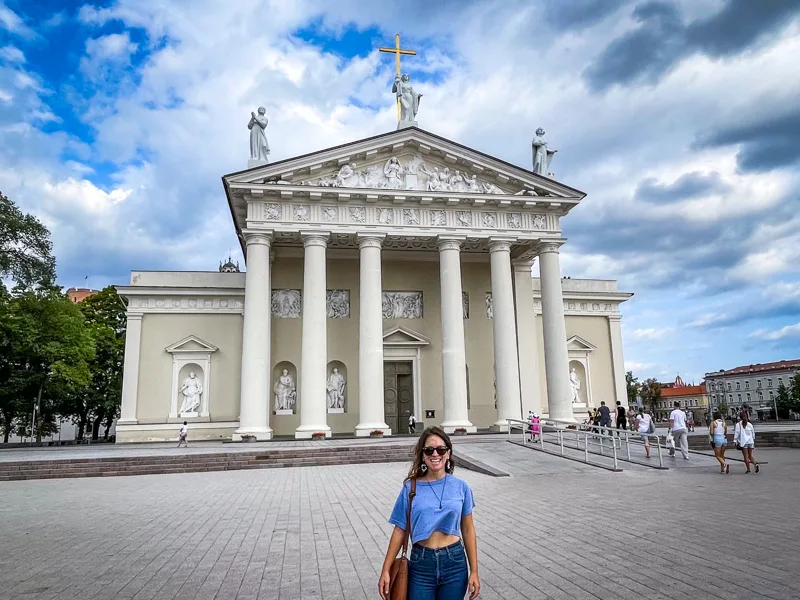
There is nothing better than summer in Lithuania. I have never experienced such long days, with the sun setting close to 10:30 at night and rising around 4:00 in the morning. When I finish work, I head out for a walk or to sit in the park with friends. You can go for a swim at a nearby lake at 9pm and come home for a late dinner at twilight. It feels like such a luxurious time of year.
When the lakes freeze over, it’s sauna season in Lithuania, which has also been an interesting addition to my lifestyle here. There are entire indoor parks around the country with dozens of different saunas of varying temperatures and humidity levels, and there’s the simple local sauna at the nearby swimming pool close to my house. Many people have saunas of their own at home which are fuelled by firewood. You heat up and then head out into the winter weather to roll in the snow or, if the lake or nearby pond isn’t frozen, take a little dip in the water.
It’s also one of the safest places I’ve ever lived. Children walk home from school alone, kids play in the park without adult supervision, I feel perfectly safe walking home alone at night or jogging in the park in the morning with headphones in. After living in such a big city, I really appreciate the boost in quality of life to live somewhere that prioritises safety and community.
Another fantastic addition, which I have never experienced before, is the proximity and affordability of international travel. I can hop on a bus and be in Latvia, Poland or Estonia in a few hours. I can get a cheap flight to Italy and be there in about two hours. I have been able to travel easily to Greece, France, Spain, the UK and Austria since living in Lithuania. It’s a fantastic perk of being based in Central Europe.
On the locals…
I have found Lithuanians to be welcoming to me on my transition to living here. I have found particular kindness from those who have watched my videos on YouTube. People are quick to offer tips about places to see, guidance on the language, advice about making it through the brutal winter, and words of encouragement as I try to get to know more about Lithuanian culture.
But no one can beat the Mexicans when it comes to being welcoming. Mexicans are notoriously warm people. Anyone who has ever spent time in Mexico will regale you with stories of someone they met who invited them over for a meal, or helped them find what they were looking for when they were lost, or laughed with them when they tripped over the uneven sidewalks in the street.
I have learned that, in general, if you make an effort to understand a bit of someone’s language, if you are eager to learn about them and their culture, and if you smile profusely, then people are welcoming in many parts of the world.
On the language…
Learning any language as an adult is difficult. Lithuanian is no different. It’s more difficult for me as a native English speaker from the US where I was never exposed to a language like Lithuanian. When I first started trying to learn it, each word felt so foreign to my mouth, so difficult to form with my throat and tongue, but with practice, lots and lots of practice, it started to get easier. I have reached a level where I feel confident enough to go to a local market or order at a restaurant, but I would have to spend a whole lot more time studying to reach a conversational level.
I spent a year living in South Korea teaching English, and that was without a doubt the hardest language I have attempted to learn. Much like Lithuanian, I had never been exposed to Korean, and trying to learn it was like trying to memorise completely unrelated sounds in a specific order and hope that it made sense. The pronunciation is so difficult and of course, there is a completely different alphabet, but learning to read is easy compared to speaking and listening.
Spanish came easier, although it still wasn’t easy to learn. I studied it in high school, and my grandparents are from Puerto Rico, so I was exposed to Spanish much more when I was growing up. But I still spent hours of my day studying when I was living in Mexico in order to reach a level of conversation and eventually intermediate fluency.
On the cost of living…
The cost of living in Lithuania is very affordable if you are earning a wage from outside of the country. As an American earning closer to an American wage online, I find living here to be much more affordable than the US and even more affordable than Mexico City.
2022 saw a huge increase in the cost of housing, but it’s still possible to find a studio or one-bedroom flat in the biggest city of Vilnius for about EUR 500 per month (not including utilities). In smaller towns like where I live, you can pay anywhere from EUR 180-350 per month for a studio or one-bedroom apartment. If you want to live in the city centre in Vilnius in a modern apartment, of course you will pay closer to EUR 650-800, depending on location and quality of accommodation.
Food is also relatively inexpensive in Lithuania when compared to other EU countries. I tend to spend about EUR 30 per person on groceries per week (there are two of us, so it’s a little bit cheaper per person overall). If I go out to dinner, I spend anywhere from EUR 5-15 per dish depending on the quality of the restaurant, but even the nicest places in Lithuania are never too expensive.
Lithuania is one of the more affordable countries I’ve lived in, especially when it comes to renting. In Mexico City, rent was about EUR 500 per month for a smaller flat on the outskirts of the city. Food costs were roughly the same, but going out to eat and drink costs a bit more in Mexico City than it does in Lithuania.
On missing home…
What do I miss? My family and friends. I’ve been living abroad for nearly 13 years now, so I’ve managed to find ways to make up for missing bagels and New York pizza, but I miss watching my nieces and nephews grow up, miss being able to spend quality time with my parents or simply being able to pop over to have Sunday dinner with my brothers. It’s definitely the biggest sacrifice of living abroad.
Never Looking Back In The Netherlands
Jessica Cutrufello is a content creator from the United States who, in 2014, sold most of what she owned to start living the European lifestyle in Amsterdam, Netherlands. Her YouTube channel is focused on sharing European gems through food and memorable experiences, while also chronicling her own expat journey. She aims to inspire those with dreams of travelling or moving to Europe to explore and appreciate the authentic side of European culture beyond the typical tourist attractions.
On life in the Netherlands…
As someone who grew up in the mountains of Virginia, I find Amsterdam’s small-city lifestyle to be uniquely special. I consider the city to be a village because, despite having less than one million residents, it feels very intimate, and certain neighbourhoods only enhance this intimate atmosphere. Amsterdam has many amenities that make life both easy and fulfilling, which is especially great for me as a travel YouTuber who frequently uses planes and trains. I live just 10 minutes by bike from the ferry, and from there, it’s a quick ride that takes less than five minutes to get to Amsterdam Centraal Station. As a bonus, I can get from my front door to my gate at Schiphol Airport in an hour.
I don't believe it's any harder or easier (to make friends) than moving to a new state in your own country. I've found that there are plenty of ways to make friends in Amsterdam, and in fact, building a network is one of the most important things you need to do when you move anywhere.” – Jessica Cutrufello
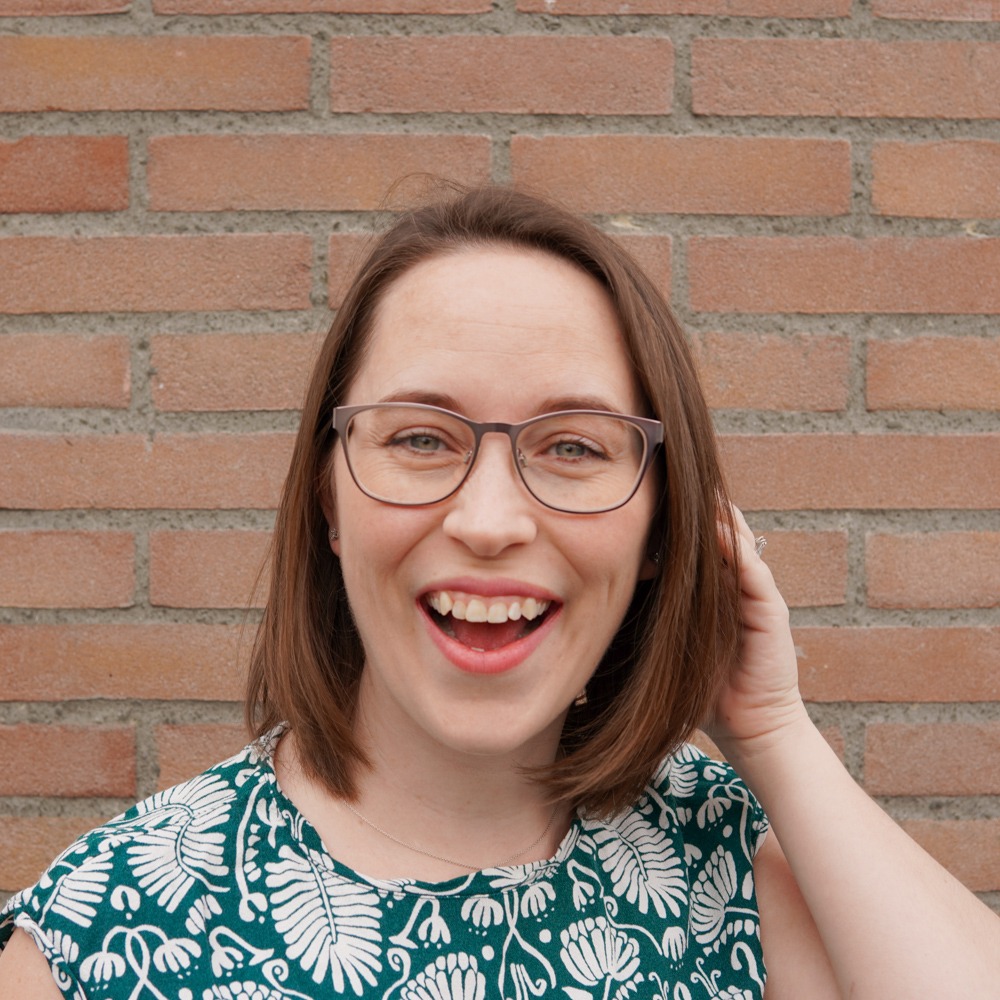
But what makes Amsterdam special for me is not just its convenience; it’s also the stunning Dutch architecture and the enchanting canals, especially when they’re lit up at night. It’s the small shops where I’m a regular and where the owners know my name. The city’s slower pace makes life feel simpler, but it still has its share of frustrations caused by over-tourism. Nevertheless, I find it all worth it to live in such a beautiful and diverse city.
On the locals…
In my experience, the locals in Amsterdam are generally welcoming. Like most people, the Dutch already have their circle of friends from work, school and family, so it can be challenging to build new friendships here. However, I don’t believe it’s any harder or easier than moving to a new state in your own country. I’ve found that there are plenty of ways to make friends in Amsterdam, and in fact, building a network is one of the most important things you need to do when you move anywhere. (I even made a video and blog post about it.)
However, as an expat who’s planning to stay here for the long haul, I do recognise that it can be difficult to build long-lasting relationships. Many people come to Amsterdam for just a few years, so some locals may be hesitant to invest in a friendship that will eventually end.
On the language…
For me, learning Dutch in Amsterdam has been a bit of a challenge. It’s an incredibly international city and many of the locals speak excellent English, which can make it hard to practise Dutch. However, I believe it’s important to know at least the basics of the language to get by and show respect to the Dutch culture. There are many different kinds of Dutch classes available to help you get started, but I find that immersion and practice are the most effective ways to learn. Even though it’s been a few years since I started learning Dutch, I’m still taking classes because I feel like it’s the right thing to do, as someone who has chosen to live here. I want to become more fluent in the language and be able to have more meaningful conversations beyond ‘Restaurant Dutch’.
On the cost of living…
I find that the cost of living in Amsterdam is doable, but it depends on various factors. It’s generally considered an expensive city, despite being cheaper than many cities in the US. Going out can be expensive in certain areas, but there are also more affordable options, especially if you venture outside of the city centre. In general, I find that life here is less expensive than back home. We don’t need a car, since many jobs cover public transportation costs. Health insurance is affordable, with no co-pays to see the doctor, and prescription medicines are cheaper. Additionally, there are plenty of options for affordable groceries, and walking is a feasible option for getting around if you don’t want to cycle. Once you find a place to live, I would say that the overall cost of living in Amsterdam is reasonable.
On missing home…
I’m not someone who typically gets homesick. So, aside from missing the people I care about, I can’t say there’s anything specific that I miss about home.
Finding Financial Freedom In Ecuador
In 2017, Amelia And JP Basista sold everything they owned in Denver, Colorado and moved to Ecuador with their two dogs, launching a YouTube channel and website to document their crazy adventures. Each week, they post entertaining and informational videos about living abroad and working online as digital expats, in hopes of encouraging more people to live a higher-quality lifestyle beyond their usual borders. Though Ecuador is their home base, they spend a lot of time visiting other countries like Mexico and Colombia, so they can share their thoughts about the best places to live a freedom-oriented lifestyle. They admit that a lot of what they believed about other countries before moving abroad was wrong, and now they want to help educate others so that they don’t fear the wider world, but rather embrace it.
We can indulge in delicious foods, enjoy modern amenities and access quality healthcare, all without breaking the bank. After more than five years living in Ecuador, we still think it offers an enriching and unforgettable experience that's hard to match anywhere else.” – Amelia And JP Basista
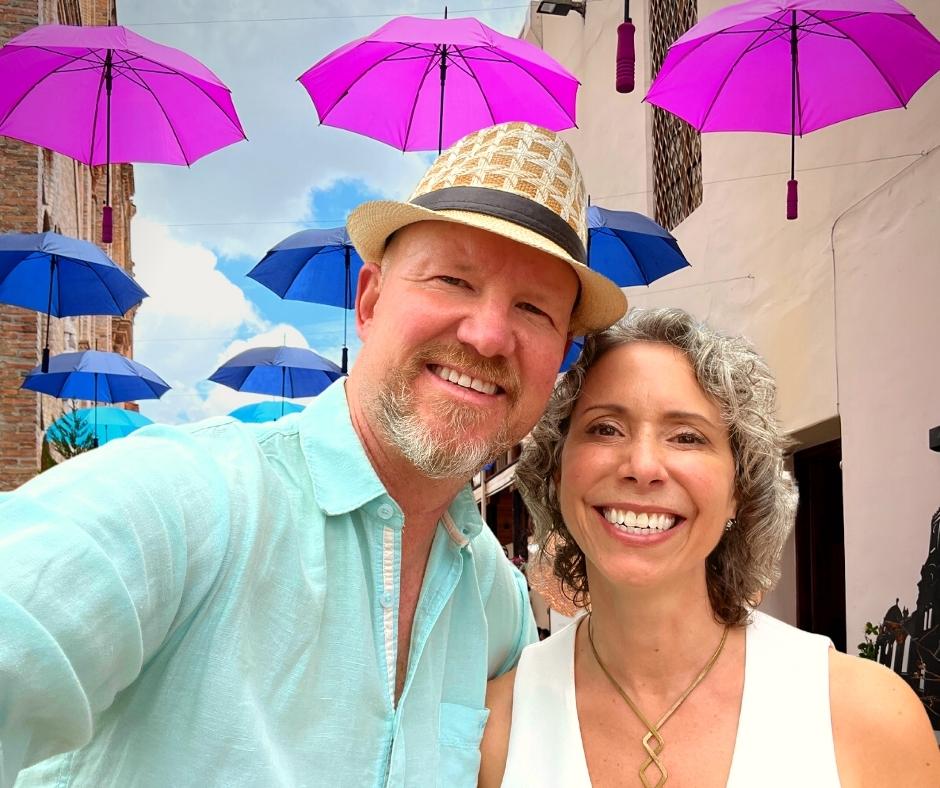
On life in Ecuador…
When we think of Ecuador, the first thing that comes to mind is its incredible natural diversity. From the lush Amazon rainforest to the majestic Andes mountains, the beautiful Pacific coast and the fascinating Galapagos Islands, there’s something for everyone. Plus, the cost of living in Ecuador is surprisingly low, making it an affordable and comfortable place to live or visit. We can indulge in delicious foods, enjoy modern amenities and access quality healthcare, all without breaking the bank. After more than five years living in Ecuador, we still think it offers an enriching and unforgettable experience that’s hard to match anywhere else.
On the locals…
We have felt very welcomed in Ecuador, especially when we try to speak Spanish. That almost always elicits a smile and sometimes a giggle. They love to share their culture and nature with tourists and foreign residents alike.
On the language…
The version of Spanish spoken in Ecuador is a bit different from the Mexican Spanish we learned in school back in the US and on our language learning apps. Plus, there are several different Spanish accents here, depending on the region. There are also elements of the Kichwa indigenous language that have been integrated into the local version of Spanish. All of this has made it more challenging to learn Ecuadorian Spanish, and we still find it easier to speak and understand Spanish in Mexico.
On the cost of living…
We estimate that the cost of living is about a third of what we spent to maintain a similar lifestyle back in Denver. When we first moved to Ecuador, we were on a very tight budget and lived on roughly USD 1500 per month. We rented a three-bedroom townhouse in a very desirable neighbourhood for USD 800 per month. Since then, we’ve spent between USD 2000 and 3000 per month, but we’ve significantly upgraded our housing, which accounts for nearly all of the monthly budget increase. In Manta, we rented a two-bedroom condo on the 15th floor of a luxury oceanfront resort-style condo building for USD 1300 per month.
Our food budget is about USD 350 per month, and our private health insurance is now USD 214 a month, which covers both of us and JD’s pre-existing spinal condition. When we lived in Denver, we didn’t earn enough to cover our cost of living, but the significant cost savings from living in Ecuador allowed us to pay off all of our debt in three years and start saving for retirement.
On missing home…
We miss our families and friends the most. We were already geographically dispersed in the US, so we didn’t live near them, but we did see them more often before we moved abroad – although the pandemic is mostly responsible for that because we didn’t want to get on an aeroplane for almost two years. Regular phone and video calls help bridge the continental gap.
Putting Down Roots In Portugal
We are the Newbys: John, Tara, Crusoe and Sawyer, a world-travelling British family who have taken root in Northern Portugal and are currently transforming an abandoned farm into an off-grid homestead. On our YouTube channel, we have attracted a loyal base of around 80K subscribers who watch each week’s projects and renovations as our farm starts to take shape and come to life. Crusoe, our eldest son, is about to turn two and loves to help his dad build things and work in the gardens. Tara is often busy doing craft projects and cooking (which she loves), while looking after our youngest son Sawyer, who is just five months old. Our aim with the YouTube channel is to inspire people to “think big, be brave and explore” – it’s our family motto.
There is no question that the Portuguese people make living in Portugal special. Their friendliness, warmth, genuine sense of community and generosity when it comes to helping people is amazing.” – John and Tara Newby
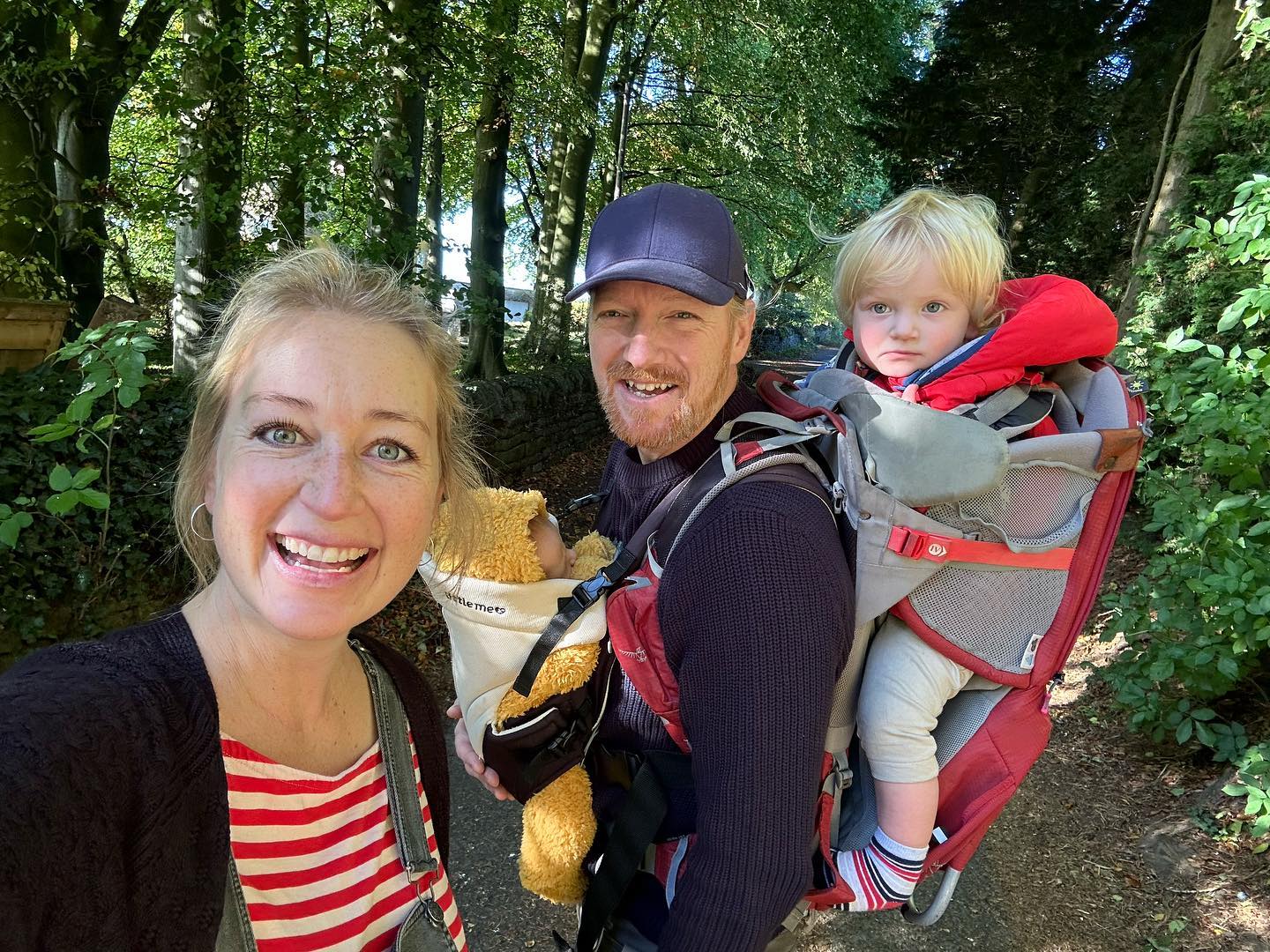
On life in Portugal…
The weather is wonderful. Where we live in the north it’s very green, with some rain and lots of sunny days. There’s nothing quite like being outside most of the year, and with two small children, being outside is really important.
We live on a farm, and together with our own crops and those of our neighbours, not only do we know where our food comes from, it makes us feel healthy and strong when we eat it. The local restaurants are also fab, serving simple but very tasty food at good prices.
For us, we love the freedom of this lifestyle. We wake up every morning and work towards a goal that is entirely ours, with no bosses, no urgency and no pressure. Our Youtube channel is also helping to inspire people to move towards a simpler lifestyle and a more sustainable way of life. Here in Portugal, that feels a lot easier than back home in the UK. Cost of living likely has a lot to do with this.
When we moved to Portugal we sold our house in the UK and used the proceeds to buy a property here. This lifted the burden of a mortgage and freed us up to explore other opportunities, like the Youtube channel and building a homestead instead of being sat behind a desk looking at computers all day. We’ll be forever grateful for that!
On the locals…
There is no question that the Portuguese people make living in Portugal special. Their friendliness, warmth, genuine sense of community and generosity when it comes to helping people is amazing. There have been so many instances where, without the help of our neighbours, life would have been quite difficult. For example, when our old car’s gear stick snapped off – such a random thing to have happen – and we couldn’t move the car from the driveway. Our neighbour called his friend who happened to be a mechanic, he came and fixed the car for free. This could have been a nightmare, but instead it was a problem solved through kindness. Another example is a neighbour running a makeshift water pipe from their house 300 metres away to ours when our off-grid water system ran dry last summer. Without that pipe and their help, we would have needed to buy all of our water.
We try to employ and ask for as much local help as we can, including local farmers who own tractors (we don’t own one), the neighbour’s son who comes every weekend to do odd jobs and help advise us on how to grow our produce, and digger drivers for heavy excavation works.
On the language…
It’s been very hard to learn Portuguese, as we have not been able to make it a primary focus while making a house to live in that’s comfortable and also looking after two children under two. Though we can say that Tara is doing better than John…
That being said, we really want to make sure that we learn the language. John speaks two languages, Finnish and English. He lived in Finland for 13 years and learned the language, so one would expect that he learns Portuguese, too.
We are learning through apps, and though they’re all focused on Brazilian Portuguese (which is different from European Portuguese), it’s a start and a useful tool all the same. The locals in our area don’t really speak too much English, so the longer we are here, the more of a priority learning a good standard of the language is becoming
On the cost of living…
The cost of living is significantly less than in the UK. Housing prices are lower, and we don’t need as much energy to heat our house, which has kept monthly bills down. Council tax is also significantly less here than the UK, though petrol prices are similar. When we need to use public transport, the prices are a lot lower than the UK: EUR 7 for an RTN train into Porto from where we live. The same journey in the UK would likely cost at least EUR 30. And ordering a bottle of wine with dinner at the local restaurant isn’t going to smash the budget!
We have chosen a less consumer-based lifestyle, which also helps the finances. We did go looking to buy some jeans the other day, and were surprised to see the prices of designer clothes are much higher than they are in the UK.
On missing home…
We mostly miss friends and family, but they head out to Portugal regularly because it’s a free holiday with sunshine, and a nice place to be.
We do miss fish and chips and a good curry. Portuguese people in our area don’t tend to branch out with their culinary options very often, and outside of big cities in Portugal, you don’t get much choice.
We also miss one-stop-shop hardware stores. Leroy Merlin and MaxMat are the two big ones here, and if they don’t sell what you need – which is very often the case – then it’s an epic search to random local shops to find stuff. This can be frustrating; it feels quite old-fashioned. With no large chain stores, the small local shops are leading the way – which is fantastic in one sense, but makes life a bit slower, especially when the people that work there don’t speak much English.
Moving to a new country is like playing a game of snakes and ladders: lots of successes and lots of back steps, lots of new learning, never a dull moment for sure.

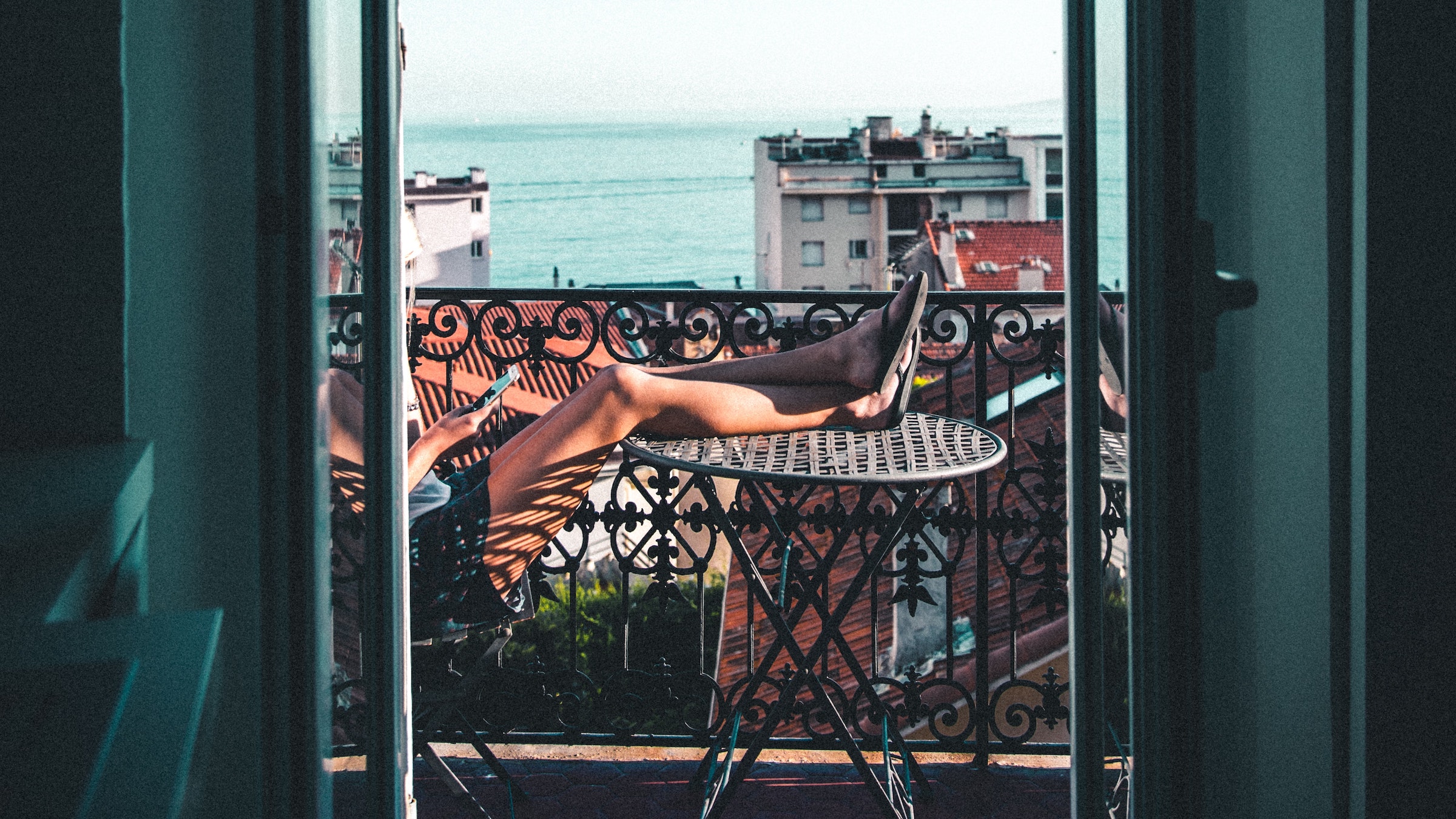


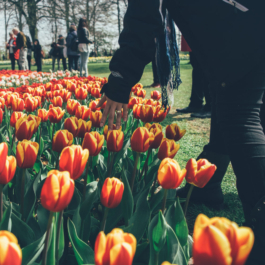









Sorry, the comment form is closed at this time.